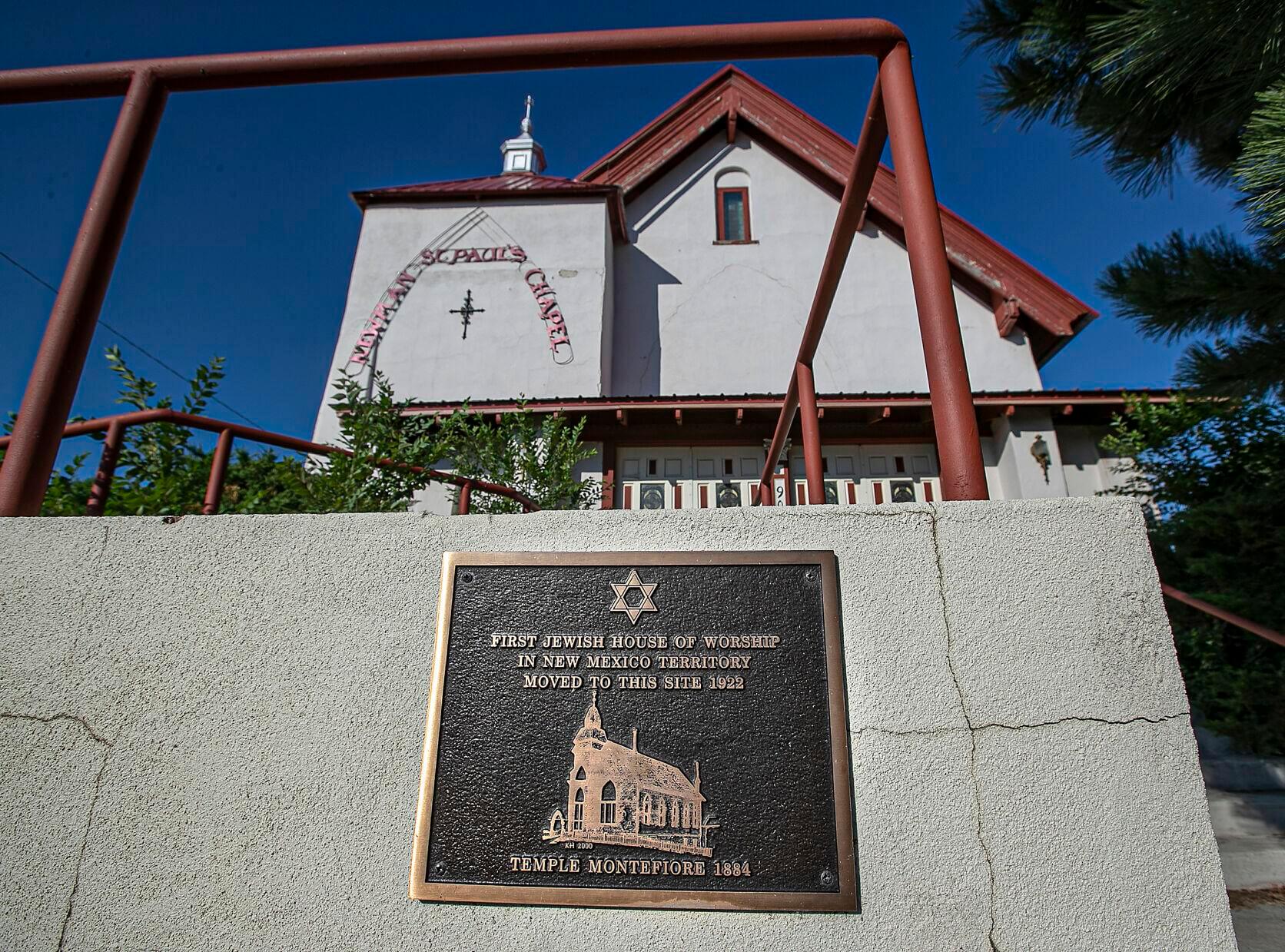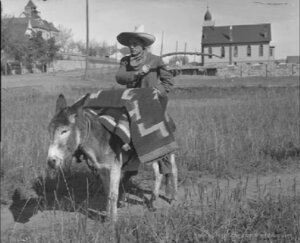They were forced to sell their beloved synagogue. 7 decades later, they finally have a chance to buy it back
The Montefiore Synagogue in New Mexico may be on the brink of being returned to the city’s small but thriving Jewish community.

Graphic by Angelie Zaslavsky
The Las Vegas, New Mexico, Jewish community is determined to buy back its synagogue.
It’s an opportunity few saw coming. The Santa Fe Archdiocese has owned the Montefiore Synagogue for some seven decades, and consistently refused to sell it back to the local Jewish community, despite repeated pleas.
But a $121.5 million settlement related to a Chapter 11 lawsuit about sexual abuse in the New Mexico church has pushed the archdiocese into bankruptcy — and forced a sale of the historic building, which Jewish leaders in the city of 13,055 have long aspired to make a new center of Las Vegas Jewish life.

Sure, the community has to drum up the funds to purchase the building. But “it will be bought by us,” said Zelda McCrossen, treasurer for the Las Vegas Jewish Community. “That’s a given.”
A GoFundMe page to help the community purchase the Montefiore Synagogue — which, per the archdiocese’s bankruptcy agreement, the archdiocese must sell within 30 days of signing — had raised more than $78,000 as of Wednesday afternoon. According to court documents, the Las Vegas Jewish Community and Archdiocese of Santa Fe entered a deal for the community to buy the synagogue and an adjacent house for an undisclosed amount on Aug. 23.
Since the Las Vegas Jewish Community does not have sufficient funds to meet that price on hand, they are crowdfunding to cover the costs.
A history, and a rebirth
The Montefiore Synagogue dates to 1886, a time when a large Jewish community had settled in Las Vegas and nearby Santa Fe. A train station was added to Las Vegas in 1899, making it more accessible.
However, by the 1950s, the Jewish community had dwindled, and could no longer afford to maintain the synagogue. The archdiocese purchased the property, and transformed it into a private facility for students at the nearby public Highlands University for students to learn about Catholicism.
The Jewish community of Las Vegas, which has been growing in the past decade, has, McCrossen said, made multiple offers to buy back the building in the past few years.
Tom Macken, a representative of the Santa Fe Archdiocese, said the church would be “delighted” if the synagogue returned to the Jewish community as planned.
The Las Vegas Jewish community today, McCrossen said, is a “mixed community” without any official denomination. “We do have a lot of converso and crypto Jews in northern New Mexico,” she said. But, she said, “we’re from all over.”
In recent years, the community has hosted major events at the city’s Episcopal Church, including Passover seders and Hanukkah celebrations. It also held Hebrew classes over Zoom during the pandemic.
The community does not have an in-person rabbi, but visiting rabbis from Albuquerque regularly help with events.
The community plans to hold High Holiday services this year in the synagogue after reclaiming it, and to use it as a community space. At least for the moment, weekly services don’t appear to be in the community’s future, but there are plans in the works for the synagogue to host a museum and community events, and to serve as a center for Jewish education.
“The only way we’re going to fight antisemitism is through education,” McCrossen said, ”and that’s part of our goal in wanting to have this building back.”
Correction, September 8: A previous version of this story had an incorrect name for Tom Macken, and cited him as a representative of the Las Vegas Archdiocese; he represents the Santa Fe Archdiocese. It also said that Amtrak opened a train stop in Las Vegas in 1899. Amtrak was not founded until 1971.















